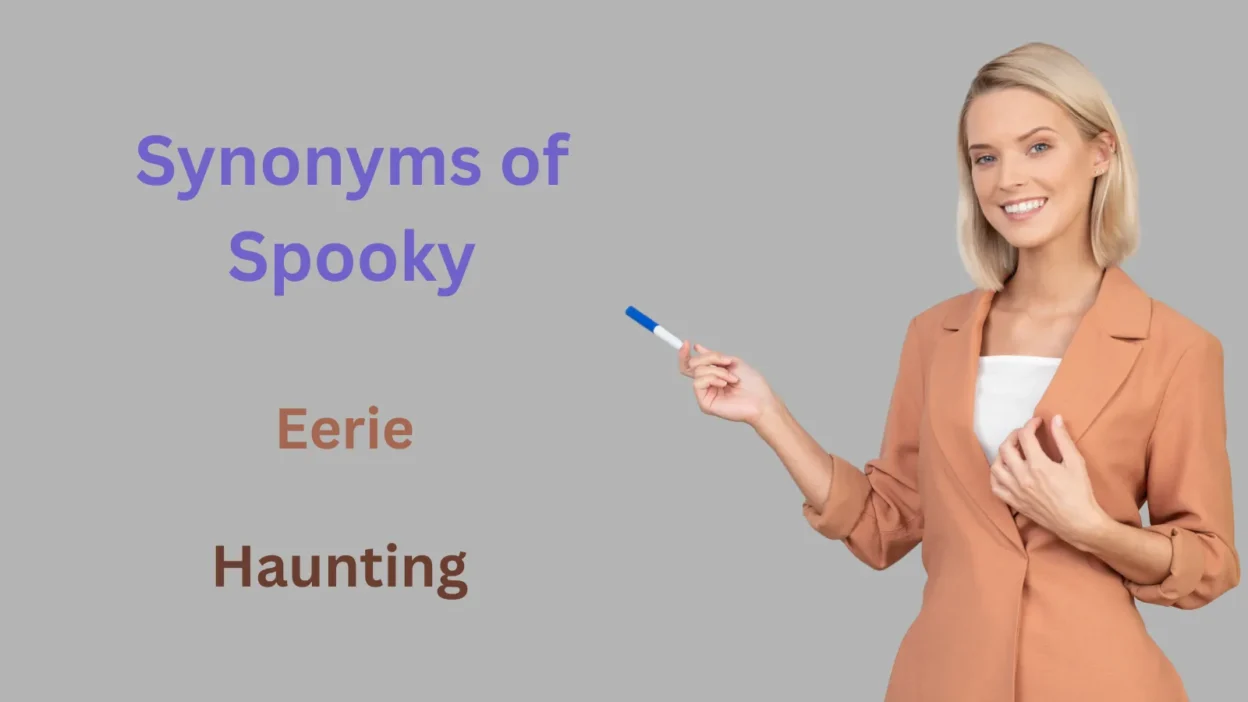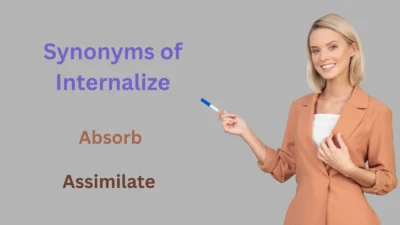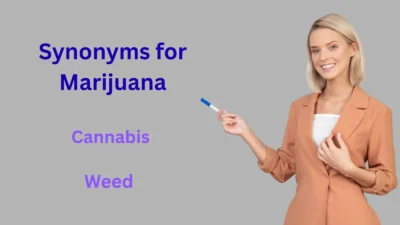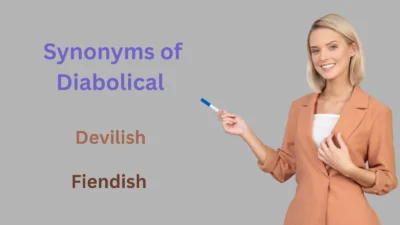Synonyms of spooky, like eerie, creepy, ghostly, and haunting, describe things that feel strange, scary, or mysterious. For example, “eerie” shows a strange and unsettling feeling, while “haunting” means something stays in your mind or spirit.
If you write about Halloween, haunted houses, or ghost stories, using the right spooky substitute helps show different kinds of fear, mystery, or chills.
Spooky synonyms make your writing stronger and help you describe fear or mystery. From stories to captions, these alternatives for spooky can make your reader feel the thrill.
What Does Spooky Mean?
Spooky means something that causes fear, unease, or a sense of the supernatural. It is often:
- Strange or unsettling
- Linked to ghosts or spirits
- Able to make people feel suspense or fear
- Atmospheric and memorable
It is not just scary—it makes you curious and gives a shiver. Think of spooky as a feeling that sticks, mixing fear and fascination.
Synonyms of Spooky: Meaning, Examples, and Pronunciation
1. Eerie
Meaning: Strange, mysterious, and slightly frightening.
Use: Often for subtle, unsettling situations rather than outright terror.
Example: The abandoned house had an eerie silence that made us all uneasy.
2. Creepy
Meaning: Causing a strong feeling of discomfort or fear.
Use: Casual or informal contexts; often describing people, situations, or places.
Example: He gave me a creepy smile that made my skin crawl.
3. Ghostly
Meaning: Resembling or characteristic of a ghost.
Use: Describing apparitions, pale figures, or supernatural phenomena.
Example: A ghostly figure appeared in the misty graveyard.
4. Haunting
Meaning: Beautifully unsettling or emotionally lingering.
Use: Literary contexts or describing something that stays in memory.
Example: The melody was haunting, lingering in my mind long after the concert.
5. Macabre
Meaning: Gruesome, related to spooky season.
Use: More intense than “spooky,” often literary or formal.
Example: The film’s macabre scenes were not suitable for children.
6. Uncanny
Meaning: Mysterious in an unsettling way.
Use: Often for strange coincidences or situations that feel beyond natural explanation.
Example: It was uncanny how much he resembled his grandfather.
7. Frightening
Meaning: Causing fear or alarm.
Use: Straightforward, general-purpose synonym for scary situations.
Example: The thunderstorm was frightening for the small children.
8. Sinister
Meaning: Suggesting evil or harm.
Use: Strong, formal tone; often used for villains, dark plots, or ominous atmospheres.
Example: A sinister shadow moved across the alleyway.
9. Chilling
Meaning: Causing a sudden sense of fear or cold dread.
Use: Dramatic and literary, good for suspenseful writing.
Example: The detective told a chilling story of the unsolved murders.
10. Terrifying
Meaning: Extremely frightening.
Use: Strongest level of fear; not usually playful.
Example: The tornado was absolutely terrifying.
11. Apparitional
Meaning: Like an apparition or ghostly appearance.
Use: Literary or formal writing.
Example: An apparitional figure hovered near the old castle’s windows.
12. Otherworldly
Meaning: Strange, unearthly, or supernatural.
Use: For mystical or surreal experiences.
Example: The spooky house had an otherworldly beauty.
13. Spine-chilling
Meaning: Extremely frightening or eerie.
Use: Informal or descriptive; emphasizes physical reaction to fear.
Example: The ghost story was spine-chilling.
14. Spectral
Meaning: Related to or resembling a specter or ghost.
Use: Literary or formal; for haunting appearances.
Example: The spectral figure faded into the fog.
15. Unsettling
Meaning: Causing discomfort or unease.
Use: Mild fear or psychological tension rather than horror.
Example: The sudden silence was unsettling.
16. Ominous
Meaning: Suggesting that something bad will happen.
Use: Suspenseful or dramatic contexts.
Example: The dark clouds looked ominous over the village.
17. Freaky
Meaning: Strange, odd, or unnerving.
Use: Informal, often casual or humorous.
Example: It was freaky how the doll seemed to watch me.
18. Shadowy
Meaning: Dark and mysterious; partly hidden.
Use: Describing physical darkness or metaphorical ambiguity.
Example: A shadowy figure lurked in the alley.
19. Crawly
Meaning: Causing a creeping sense of discomfort or fear.
Use: Informal, often describing sensations rather than objects.
Example: The silence in the room made my skin feel crawly.
20. Phantasmal
Meaning: Like a phantom; ghostly.
Use: Literary or poetic, emphasizes visual or illusory qualities.
Example: The phantasmal shapes danced in the fog.
21. Dreadful
Meaning: Causing fear, shock, or worry.
Use: Broadly applicable in formal or literary writing.
Example: The dreadful news left everyone in silence.
22. Ghoulish
Meaning: Morbid, related to graveyards or horror.
Use: Playful or darkly humorous, often for Halloween contexts.
Example: They carved ghoulish faces into the pumpkins.
23. Mysterious
Meaning: Difficult to explain or understand, often intriguing.
Use: Mild suspense; more curiosity-driven than scary.
Example: A mysterious sound echoed through the spooky house.
24. Nightmarish
Meaning: Like a nightmare; extremely disturbing or frightening.
Use: Strong emotional intensity; often figurative.
Example: The traffic jam became a nightmarish ordeal.
25. Creepy-crawly
Meaning: Slightly humorous, referring to unsettling or insect-like sensations.
Use: Casual, playful, or descriptive of tactile sensations.
Example: The abandoned attic felt creepy-crawly.
26. Haunted
Meaning: Inhabited or frequented by spirits.
Use: Literally or figuratively; evokes memory or guilt.
Example: She felt haunted by her past mistakes.
27. Unnerving
Meaning: Causing anxiety or fear.
Use: Psychological discomfort; less about overt horror.
Example: His calm stare was unnerving during the meeting.
28. Sinister-looking
Meaning: Appearing threatening or evil.
Use: Emphasizes visual cues over overall atmosphere.
Example: The alley had a sinister-looking entrance.
29. Eldritch
Meaning: Weird, unnatural, or otherworldly; often magical.
Use: Literary, fantasy, or Lovecraftian horror contexts.
Example: The eldritch ruins glowed under the moonlight.
30. Spirited
Meaning: Ghostly or full of energy; less fearsome, more supernatural.
Use: Playful or descriptive of lively, mysterious phenomena.
Example: The spirited noises in the old house kept them awake.
How to Choose the Right Synonym
Selecting the perfect synonym depends on several factors:
- Intensity of fear:
- Mild: eerie, unsettling, mysterious
- Moderate: creepy, chilling, ghostly
- Strong: terrifying, nightmarish, macabre
- Tone:
- Informal/casual: creepy, freaky, spooky-crawly
- Formal/literary: macabre, eldritch, phantasmal, spectral
- Context:
- Supernatural: haunted, ghostly, spectral, phantasmal
- Psychological unease: unnerving, uncanny, unsettling
- Horror or suspense: sinister, spine-chilling, dreadful
- Cultural/Emotional Nuances:
- Playful Halloween context: ghoulish, spooky
- Serious horror writing: macabre, eldritch, terrifying
- Subtle suspense or mystery: eerie, uncanny, otherworldly
Using these distinctions, you can choose many spooky synonyms that not only convey fear but also match the desired emotional tone, audience, and cultural nuance.
Conclusion
Expanding your vocabulary beyond “spooky” allows for more precise and expressive writing. From casual, playful synonyms like creepy and freaky to formal or literary alternatives like macabre and eldritch, each word carries its own emotional weight and nuance.
By considering intensity, tone, context, and cultural undertones, you can select the perfect synonym to match your scene, narrative, or conversation.
Using these words thoughtfully will make your writing more engaging, vivid, and emotionally resonant.





